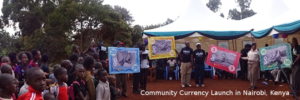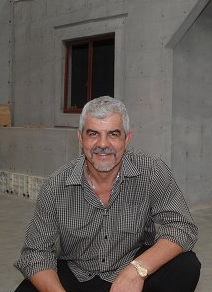Vanessa Watson & Babatunde Agbola ~ Who Will Plan Africa’s Cities
Africa’s cities are growing – and changing – rapidly. Without appropriate planning, they will become increasingly chaotic, inefficient and unsustainable. In many countries, planning legislation dates back to the colonial era. It is ill-equipped to deal with contemporary urban problems. A shortage of urban planning and management professionals trained to respond to urban complexity with progressive pro-poor approaches exacerbates urban dysfunction.
As planning educators seek to train students for employment within the existing system, the urban and rural planning curricula of many planning schools are as outdated as planning legislation. Some African countries have no planning school. The reform and revitalisation of planning education – and legislation – could contribute significantly to sustainable and more equitable urban development in sub-Saharan Africa.
Read more: https://www.africaresearchinstitute.org/who-will-plan-africas-cities/
George C. Stoney ~ How to Live in a City – 1964
“Innovation In Affordable Housing” – An Interview With Moladi’s Hennie Botes
Hennie Botes founded Moladi in 1986, after building a global business as an entrepreneur and inventor. His ability to think outside the box has led him to found a company that is revolutionizing the affordable housing market through design, innovation, and good-old fashioned ingenuity.
Can you tell us about how Moladi came about? How did you come up with the concept?
Let’s start at the beginning. As it happened, my first invention was a plastic baby bath that fit across the bathtub and gave young mothers an easy and safe way to bathe their newborn children. The design was sold the world over, and gave me the freedom to found Moladi.
Moladi was the result of my own difficulties with building with brick and mortar.
In South Africa, and many developing countries, we still suffer from a colonial mentality. Our education system does not teach us how to plant and grow food or build things. And that is a tragedy. Africa will have to uplift itself, and learn how to build things itself.
The challenge for so many local housing developments is the lack of skill. We know how difficult it was to put bricks on top of each other in a straight line, and, once the wall is built, to plaster it.
Moladi was a way I saw to build a construction system which could evolve into a job-creation tool itself, since it does not require skilled labor – in fact, over 90% of a construction team on a Moladi housing site consists of unskilled laborers.
My first attempts at building the right mold was not exactly a success but the geese on the farm got a dam as result. Gradually, and this the way with all innovation, you learn from your mistakes. The result was the Moladi building system.
Read more: http://www.greenleapreview.com/innovation-affordable-housing/
Charles F. Palmer ~ Adventures Of A Slum Fighter (1955 – Full Text)
 Charles Forrest Palmer (December 29, 1892 – June 16, 1973) was an Atlanta real estate developer who became an expert on public housing and organized the building of Techwood Homes, the first public housing project in the United States. He would later head up both the newly created Atlanta Housing Authority and the Chamber of Commerce.
Charles Forrest Palmer (December 29, 1892 – June 16, 1973) was an Atlanta real estate developer who became an expert on public housing and organized the building of Techwood Homes, the first public housing project in the United States. He would later head up both the newly created Atlanta Housing Authority and the Chamber of Commerce.
About this book – By Beardsley
ONE OF THE most glaring obstructions to a better
life for millions of our people is the obsolete design and
structure of our cities. Already we are acutely aware that the
conditions of our metropolitan schools, hospitals, transport
and recreation facilities are intolerable. And worst of all are
the slums.
That’s why this book interests me so much. It’s the author’s
adventures in wiping out slums. These are facts, not theories,
because as a practical real-estate man he has done what he
writes about. Reading like a novel, this book proves that
slums cost us taxpayers more to keep than to clear; that the
battle against child delinquency, disease, and vice is the battle
against the slum.
The response to these ills of our cities has been wholesale
flight from the city itself, but not from the city as such. The
city remains “la source” as it has been since time immemorial.
Accordingly, the cities will not wither away; they will be
rebuilt.
The rebuilding of our cities is, therefore, one of the grand
projects for the years immediately ahead. The programs will
be varied creative and imitative. The emphasis will be here
on one objective, there on another.
Where better to start than with the slums! This book of a
businessman’s adventures tells what other countries have
been doing for years, of the little we have done, and of the
big job ahead for all of us.
The book: https://archive.org/adventuresofslum.txt
Report: St. Ann’s ~ Thames ~ 1969 ~ Nottingham Slums
Thames TV’s 1969 documentary on Nottingham’s slums, introduced here by Ray Gosling in 1993.
Grassroots Economics Kenya ~ Community-Currencies
 Grassroots Economics is a non-profit foundation that seeks to empower marginalized communities to take charge of their own livelihoods and economic future. We focus on community development through economic empowerment and community currency programs. Beneficiaries of our programs include small businesses and people living in informal settlements as well as rural areas. GE is proud to have a rich history in community development programs thanks to it’s many partners.
Grassroots Economics is a non-profit foundation that seeks to empower marginalized communities to take charge of their own livelihoods and economic future. We focus on community development through economic empowerment and community currency programs. Beneficiaries of our programs include small businesses and people living in informal settlements as well as rural areas. GE is proud to have a rich history in community development programs thanks to it’s many partners.
Our goal is to improve the lives of those who are most vulnerable. We use approaches such as participatory education and in-depth research and community profiling to understand needs and design programs with meaningful impacts.
In 2010, we began the first pilot programs in Mombasa and Nairobi, which were awarded as one of the top innovations in Africa at the Forum Afrique in Paris. Thus far, our community currency programs have been supported by organizations in France, Switzerland, the United Kingdom, Germany, Netherlands, Australia, South Africa, and the United States.
Over the last two years, GE (formerly known as Koru-Kenya) has grown tremendously in the number of people we serve and the expansion of our currency programs. At this point we are close to our maximum programming capacity, with nearly all of our programs and services fully booked through the end of this year. Yet demand continues to grow. After winning a precedent setting court case, community currencies were deemed legal by the Director of Public Prosecutions and the groundwork has been created to expand these currencies wherever communities are unable to access the national currency.
—
COMMUNITY CURRENCY
A community currency is a regionally based means of exchange that does not replace but rather supplements the national currency system. Through increasing trade by matching unmet local needs with under utilized local resources, community currencies enable sustainable environmental and social development programs. Community Currencies are distinct from the wider field of financial innovations because they are set up with the asset and productive capacity backing of the communities that will ultimately use them.
Read more: http://www.grassrootseconomics.org/community-currencies




